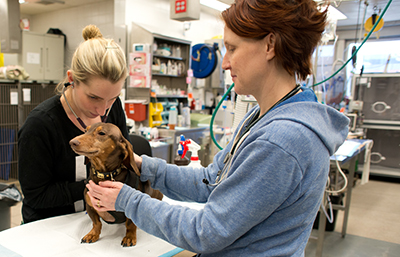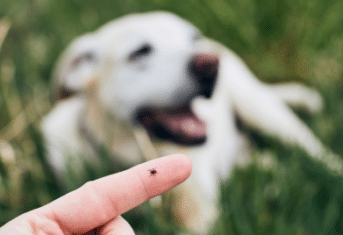Canine Influenza Q&A 2018

Canine Influenza Q&A 2018
Recently the Gothamist, an online New York City-centric news site, reported on a canine influenza outbreak centered in the borough of Brooklyn; although veterinarians expect the outbreak to expand to other boroughs. Compared to diseases like rabies and distemper, canine influenza is a relatively new disease, first described in 2005. Because many dogs have never been exposed to canine influenza, they have no immunity and the disease can spread like wildfire through entire neighborhoods. Drawing on prior blog posts, I will answer common questions about canine influenza.
What causes canine influenza?
Canine influenza is a viral disease, and two different strains of canine flu virus have been described – the original H3N8 and H3N2, first described in 2015.
What are the symptoms of canine influenza?
Canine influenza causes an upper respiratory illness with runny eyes, sneezing, and a runny nose. Most dogs with the flu have a cough. If the flu causes a fever, dogs typically are not very energetic. Occasionally, dog flu progresses to pneumonia which can be life-threatening. This list of clinical signs is not specific for canine influenza and could be due to a bacterial infection or allergies.
How do dogs get the flu?
Dog flu spreads when the virus is coughed or sneezed into the environment or onto an uninfected dog. Keeping your dog away from other dogs will help to protect them against contracting canine influenza. Humans can transport the virus on their hands or clothing. The virus is wily because dogs can transmit the virus before showing clinical signs and continue to shed the virus after clinical signs have resolved. This means a dog that looks healthy could give the flu to your dog.
Can dogs get flu shots?
Humans get flu shots in the fall because influenza in humans is seasonal. Since I am writing about canine influenza in May, you have probably guessed canine influenza is not seasonal and can occur any time of the year. The canine influenza virus does not change annually like the human flu virus and vaccines against both H3N8 and H3N2 are available from veterinarians year round.
All of us at the Animal Medical Center wish the flu-stricken dogs in Brooklyn a speedy recovery and hope all healthy dogs stay that way!































